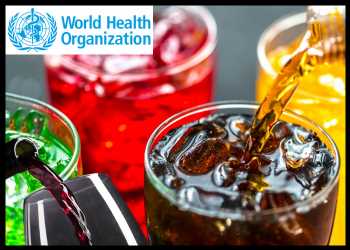The World Health Organization, or WHO, has called on countries to increase taxes on unhealthy products such as alcohol and sugary sweetened beverages (SSBs).
WHO made this call in a report it published on Tuesday, which shows a low global rate of taxes is being applied to unhealthy products.
WHO recommends that excise tax be applied to all SSBs and alcoholic beverages.
The findings in the report highlight that the majority of countries are not using taxes to incentivize healthier behaviours. To help countries, WHO is also releasing a technical manual on alcohol tax policy and administration.
It is estimated that 2.6 million people die from drinking alcohol and more than 8 million lose their lives from an unhealthy diet every year globally. Implementing tax on alcohol and SSBs will reduce these deaths, according to the report.
Half of all countries taxing SSBs are also taxing water, which is not recommended by WHO. Although 108 countries are taxing some sort of sugar-sweetened beverage, globally, on average excise tax, a tax designated for a specified consumer product, represents just 6.6 percent of the price of soda.
At least 148 countries have applied excise taxes to alcoholic beverages at the national level. However, wine is exempted from excise taxes in at least 22 countries, mostly in Europe. Globally, on average, the excise tax share in the price of the most sold brand of beer is 17.2 percent. For the most sold brand of the most sold spirits type, it is 26.5 percent.
A 2017 study shows that an increase in alcohol prices by 50 percent with the addition of taxes would help avert more than 21 million deaths over 50 years.
“Taxing unhealthy products creates healthier populations. It has a positive ripple effect across society – less disease and debilitation and revenue for governments to provide public services. In the case of alcohol, taxes also help prevent violence and road traffic injuries,” said Dr Rudiger Krech, Director, Health Promotion, World Health Organization.
The report cited the example of Lithuania, where an increase in alcohol tax in 2017 to drive down consumption have decreased deaths from alcohol related diseases. Lithuania increased alcohol tax revenue from EUR234 million in 2016 to EUR323 million in 2018 and saw alcohol-related deaths drop from 23.4 per 100 000 people in 2016 to 18.1 per 100 000 people in 2018.
Source: Read Full Article

